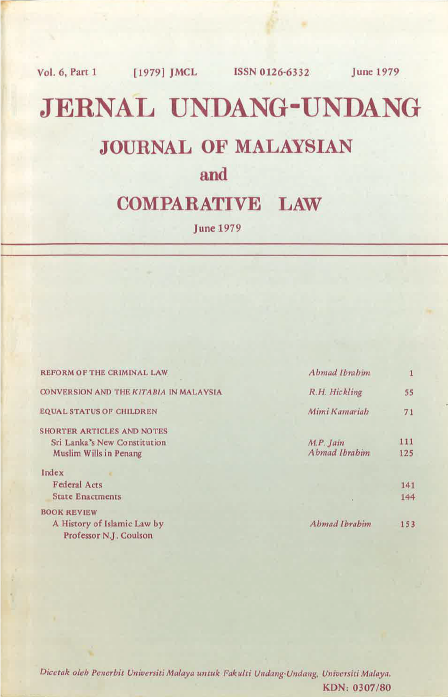Sri Lanka’s New Constitution
Keywords:
Sri Lanka, Constitution, supreme law, unitary state, Buddhism, religious freedom, fundamental rights, liberal, Directive Principles, Parliament, ExecutiveAbstract
On July 21, 1977, the people of Sri Lanka entrusted to their elected representatives the task of drafting and adopting a new republican constitution in order to achieve the goal of a democratic socialist republic. The proposed constitution was also to ensure to all people freedom, equality, justice, fundamental human rights and independence of the judiciary and ratify the immutable republican principles of representative democracy. In pursuance of this mandate, the representatives adopted and enacted the new Constitution for Sri Lanka in 1978. The purpose of this brief article is to take note of the salient characteristics of the new Constitution.
Downloads









